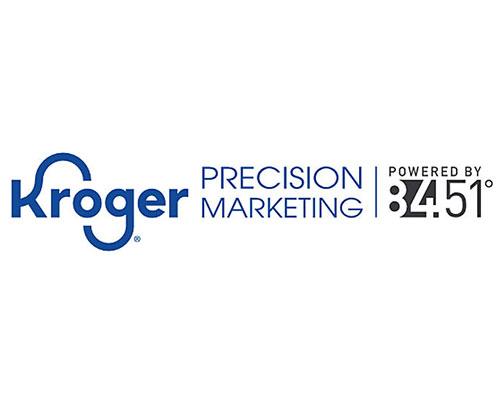Kroger to trace environmental impact of retail media network
The Kroger Co. is entering a partnership to measure carbon emissions caused by its targeted CPG advertising offering.
Kroger Precision Marketing, the retail media business of Kroger focused on connecting brand partners with shoppers and supported by its 84.51° data analytics subsidiary, will become the first retail media network to measure carbon emissions through a collaboration with supply chain emissions measurement and reduction specialist Scope3.
Through the partnership, Scope3 will measure carbon performance associated with offsite media campaigns placed through Kroger Precision Marketing. The agreement will use Scope3’s open-source methodology and emissions model to measure the carbon impact by applying Kroger’s audience data to offsite media campaigns.
The resulting benchmarks will eventually allow advertisers and agencies to compare the environmental impact of Kroger Precision Marketing relative to other retail media solutions. Earlier in 2023, advertising decarbonization organization Ad Net Zero recognized Kroger Precision Marketing as the first retail media network to support its sustainability efforts in the advertising industry.
“Media companies need to take action,” said Cara Pratt, senior VP of Kroger Precision Marketing. “The digital economy is energy-intensive – but we can reduce the impact today by eliminating wasted ad impressions. Scope3 is at the center of industry efforts to measure and verify the carbon output of the digital supply chain. This commitment paves the way for retail media to make publishers and ad tech more energy-efficient through precision audiences.”
“Running tens-of-millions of digital ad impressions only to reach thousands of relevant consumers is not sustainable for business or the environment,” said Brenda Tuohig, chief commercial officer of Scope3. “Kroger Precision Marketing uses in-store purchase signals to cut advertising waste, while Scope3 does this by helping advertisers identify and avoid high emissions inventory. Combining the two will improve marketer outcomes while reinforcing that what’s good for business is also good for the planet.”
Kroger Precision Marketing – a brief history
Kroger created Kroger Precision Marketing in 2017, in an effort to apply data science to better connect CPG brands with relevant households. The retail media network sells self-service advertising on Kroger digital properties, managed-service advertising through publisher collaborations, and programmatic advertising through its private marketplace.
KPM features nearly 2,000 participating brands, with Pratt leading a team of data scientists using 45 machine-learning models tapping purchase data from 60 million households. KPM has delivered an average 25%-30% household penetration lift and 35%-40% sales lift on campaigns, according to Kroger analysis.
Based in Cincinnati, Kroger operates 2,800 stores, including more than 100 stores in Southeast Texas and Louisiana, under a variety of banners across the U.S., including Kroger, Fred Meyer, Ralphs, Dillons, Smith's, King Soopers, Fry's, QFC, City Market, Owen's, Jay C, Pay Less, Baker's, Gerbes, Harris Teeter, Pick 'n Save, Metro Market and Mariano's.



